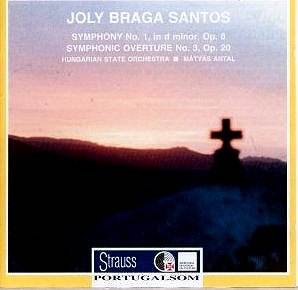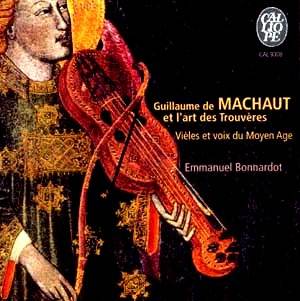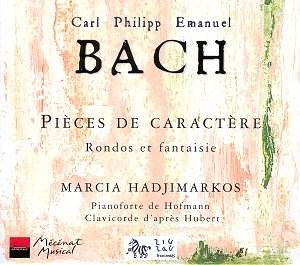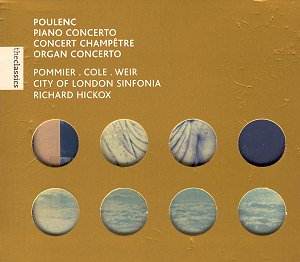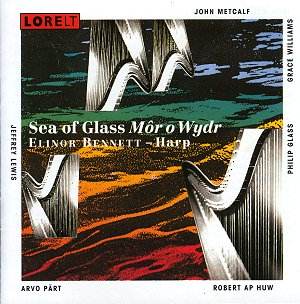 Composer: Sea
Composer: Sea
Works: Harp Scrapbook (John Metcalf), Pari Intervallo (Arvo Pärt), Hun Gwenllian (Robert Ap Huw), Dreams, Dances and Lullabies (Jeffrey Lewis), Hiraeth (Grace Williams), Spiegel im Spiegel (Arvo Pärt), Gosteg yr Halen (Robert Ap Huw), Metamorphosis no.2 (Philip Glass), Wichita Vortex Sutra (Philip Glass)
Performers: Elinor Bennett, harp
Recording: St. Silas Church, London, 1994
Label: Lorelt LNT 105
Elinor Bennett’s latest recording, the aptly titled “Sea of Glass,” showcases a repertoire that emphasizes the harp’s distinctive character while exploring its versatility in contemporary music. With works spanning various styles and eras, this collection not only highlights Bennett’s virtuosity but also serves as an homage to the instrument’s historical significance, particularly within the Welsh tradition. The harp, revered as the national instrument of Wales, finds itself at the center of a work that pays tribute to both its ancient lineage and its modern expressions.
Bennett’s interpretation of John Metcalf’s “Harp Scrapbook” is particularly noteworthy. This piece, a compilation of sketches, captures an array of moods—each section brimming with personality and charm. The playful “Rhythm Study” is infused with a light-hearted energy characterized by syncopated rhythms and sharp articulations, while “The Descent of Dumuzi” evokes a more meditative atmosphere, allowing the listener to experience the harp’s capacity for deep emotional expression. Bennett navigates these contrasting landscapes with a nuanced touch, her ability to shift from exuberance to introspection revealing a profound understanding of the music’s emotional core.
The recording quality is commendable, striking a balance that captures the instrument’s delicate resonance without overwhelming it with mechanical sounds. The acoustic space of St. Silas Church enriches the listening experience, allowing the harp’s tonal bloom to flourish while maintaining clarity. This close yet ambient recording is an essential aspect of the performance, as it allows nuanced details—such as the ethereal echoes in Arvo Pärt’s “Spiegel im Spiegel”—to resonate fully, enhancing the meditative qualities of the work.
Bennett’s artistry shines particularly in her interpretations of the minimalist works by Philip Glass and Arvo Pärt. The contrasting textures in “Wichita Vortex Sutra” exude a relaxed, almost Caribbean feel, a departure from the typically austere nature of minimalist music. Bennett’s phrasing is fluid, allowing the melodic lines to unfold naturally, while the harmonic progressions maintain a sense of forward momentum. This approach contrasts sharply with Jeffrey Lewis’s “Dreams, Dances and Lullabies,” which, despite its brooding character, showcases Bennett’s ability to bring a rich lyrical quality to the quieter passages, demonstrating her technical mastery.
The historical context of the pieces, particularly those by Robert Ap Huw, adds another layer of depth to the recording. As one of the first known harpists in Wales, Ap Huw’s music connects contemporary listeners with the instrument’s storied past. Bennett’s interpretation of “Hun Gwenllian” and “Gosteg yr Halen” is imbued with a lute-like lilt, reflecting the ancient origins of harp music while simultaneously breathing new life into these works. The technical choices she employs, including the use of harmonics and varied plucking techniques, illustrate her keen awareness of the instrument’s capabilities.
This collection, while rich in historical significance and technical prowess, occasionally leans towards a somnolent quality due to the predominance of slow, contemplative pieces. A greater balance of tempos might have invigorated the program, though the overall craftsmanship remains undeniably high. The exquisite nature of Bennett’s playing cannot be overstated; her artistry invites listeners into a world where each note is imbued with expressive weight.
“Sea of Glass” is a significant contribution to the discography of modern harp music, setting a high standard for both performance and recording quality. Lorelt’s commitment to promoting this underrepresented repertoire is commendable, and Bennett’s ability to traverse the spectrum of emotion and style within the harp’s extensive capabilities is a testament to her standing as one of the leading harpists of our time. This recording not only honors the instrument but also the composers who have so thoughtfully expanded its repertoire.
